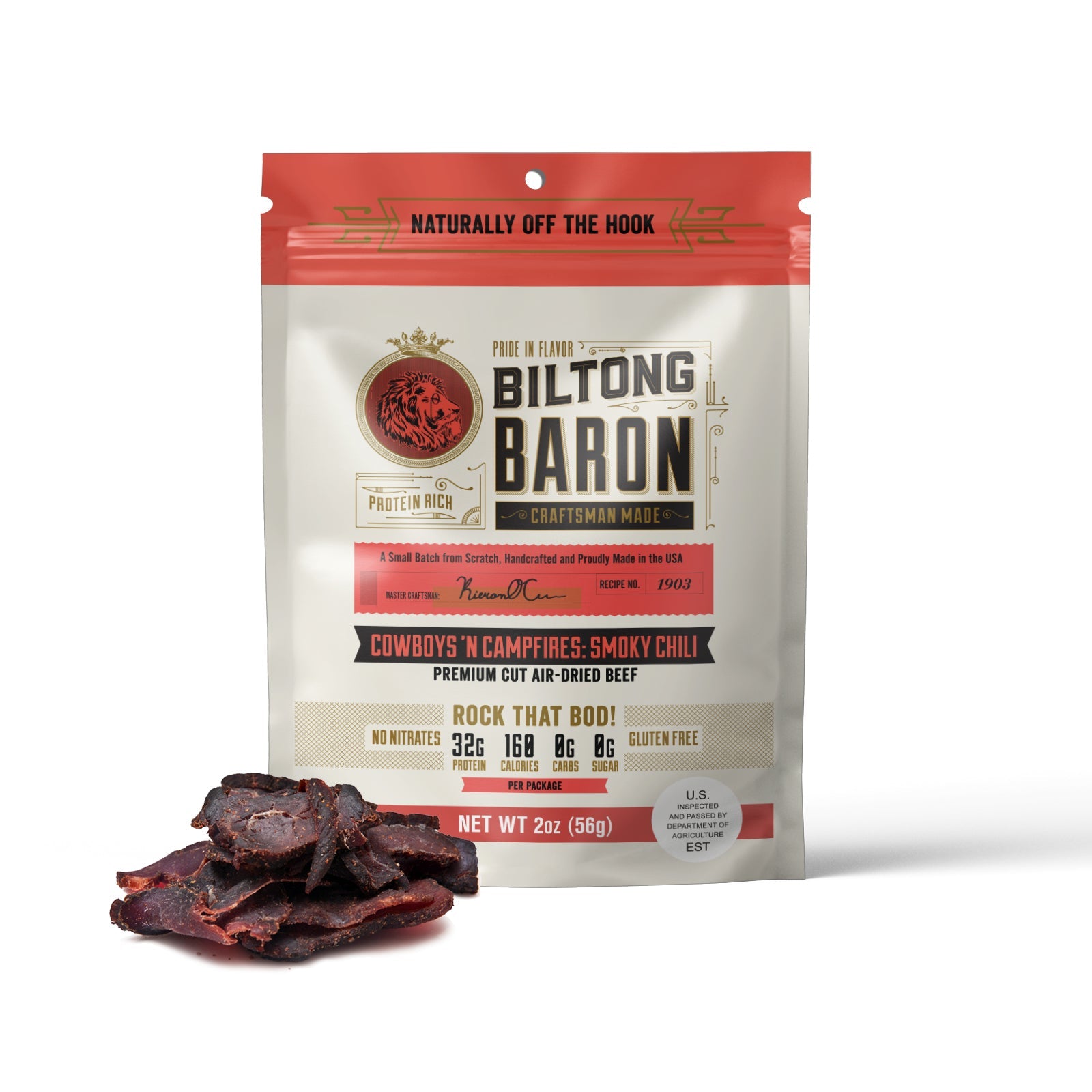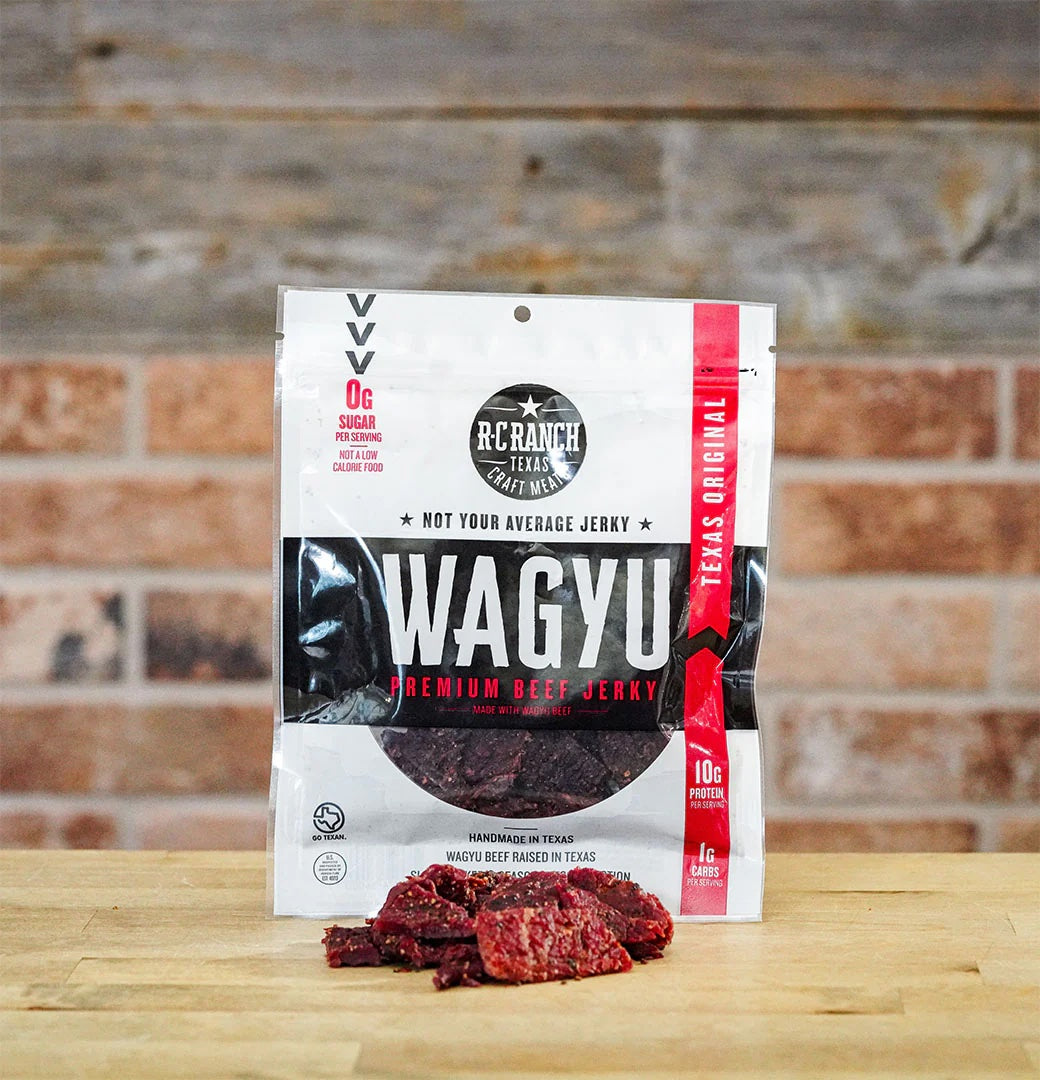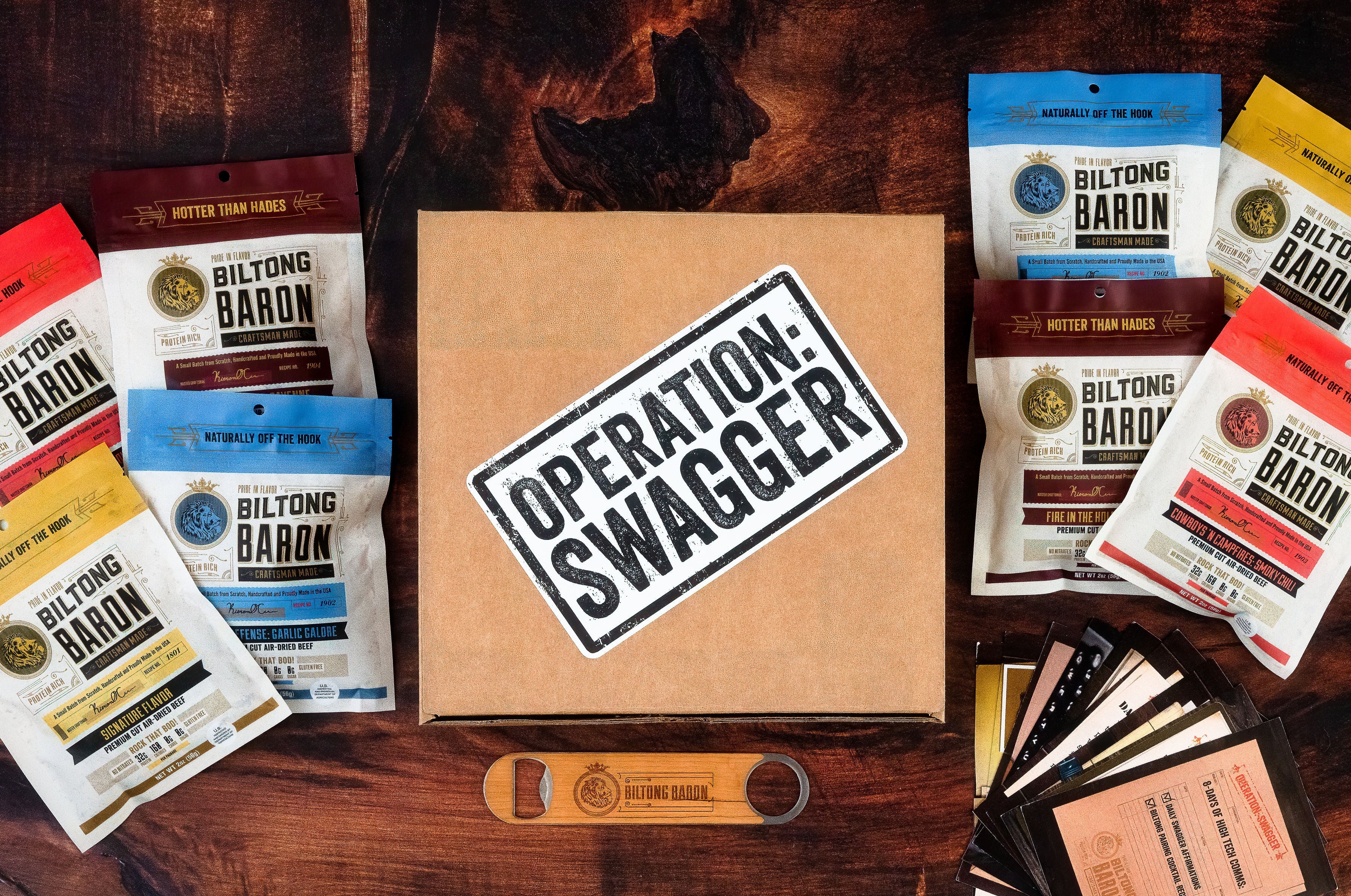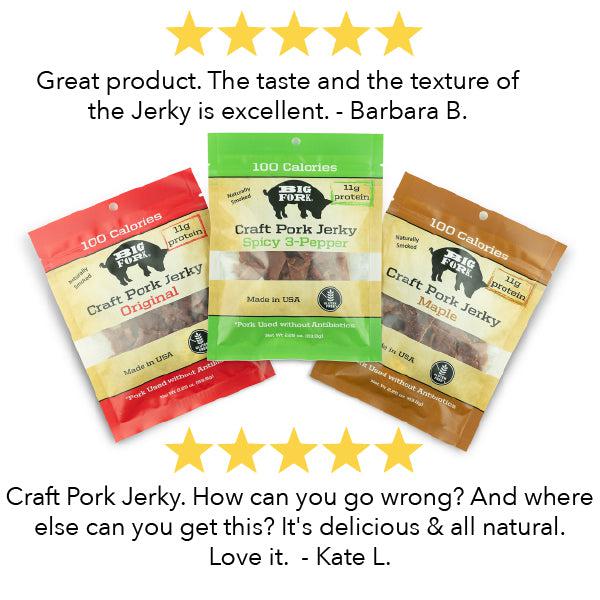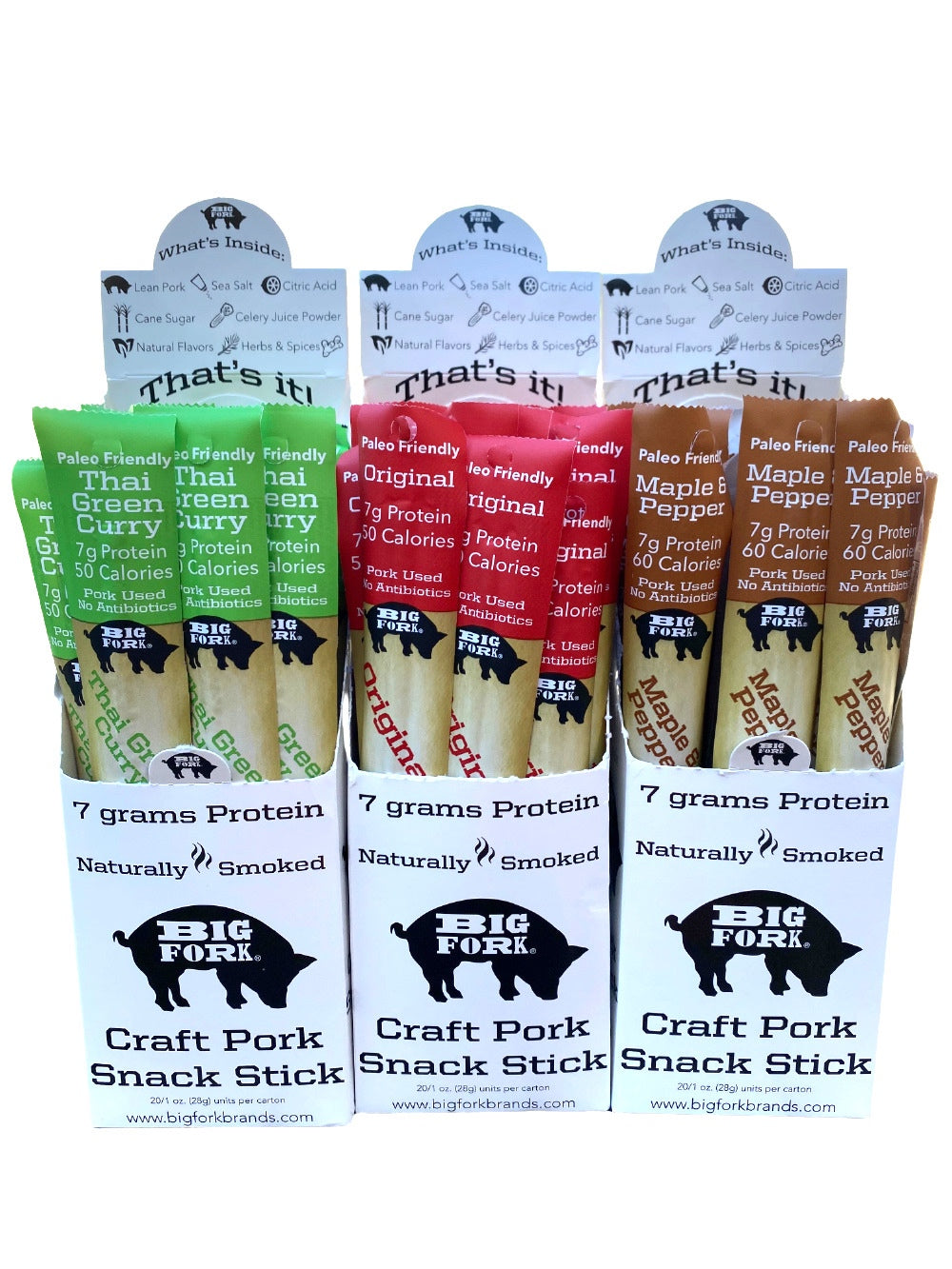-
Recently Viewed
You have no recently viewed items.
-
Featured Brands
- All Products
- About Us
- Contact Us
- Our Blog

Best Types of Jerky: Beyond Beef
When you think of jerky, what’s the first thing that comes to mind?
Nowadays, most people think of beef jerky — and rightfully so. It’s both delicious and in great supply. And you can find it at almost any grocery store or road trip pit stop.
Jerky meat has been around since ancient Egypt, but that doesn’t mean jerky has stayed the same. Jerky has evolved, and enthusiasts everywhere have added their own spin to this beloved protein-packed snack.
Beef jerky might be the most popular form of jerky, but people definitely experiment with meat beyond beef. Throughout the ages, people from all over the globe have preserved whatever meat has been available to them through the jerky process.
What Makes a Meat Jerky?
In its most basic definition, jerky is food people make from lean strips of meat that they’ve dried to prevent spoilage. The fact that it’s delicious is a huge bonus!
Food preservation and proper storage have always been key to human survival. When you think of olden times, you realize people had to hunt for their own meat — they needed a way to make it last before it went bad.
Refrigerators are a modern luxury, especially compared to the history of jerky. Through the jerky and storage process, meat can remain safe for consumption without refrigeration for much longer than fresh meat.
[Related: How Long Does Beef Jerky Last?]
Different Types of Jerky
People can make jerky from any type of lean meat, which means you actually have an array of options in the meat aisle!
Even if you’re a beef jerky aficionado, you might find a new favorite when you explore other varieties.
Beef Jerky
The ol’ reliable — beef jerky is high in protein, low in fat and our preferred treat. (After all, we named our business BeefJerky.com!)
It’s slightly tough and chewy compared to other jerkies on this list, but it’s a great midpoint for jerky lovers everywhere. Beef jerky tastes fantastic and comes in a rainbow of flavors, like smoked hickory, red pepper and sweet garlic.
Venison Jerky
Venison jerky is made from deer meat and has some great health benefits. It’s slightly tougher than beef jerky and has a distinctly gamey flavor. You can buy venison jerky online, but it’s not as widely available in stores as beef jerky. Hunters often make it as a way of preserving surplus meat.
Do you have an avid hunter in the family who doles out venison sausage for the holidays? You might ask them for some extra venison to make jerky of it yourself.
[Related: Explore Different Types of Jerky Recipes With Our Tips]
Turkey Jerky
Turkey jerky is one of the softer jerkies. It’s easier to chew, which makes it a popular choice among some enthusiasts. Anyone who has an issue with tougher foods will likely prefer this tender option.
Compared to beef jerky, it has slightly fewer calories and less fat and protein per ounce. Keep in mind that turkey jerky tastes best when combined with mild flavors. If you’re looking to quit red meat but love beef jerky, turkey jerky is a perfect alternative.
Alligator Jerky
Alligator meat isn’t just for folks living in Acadiana — you can find it at most specialty meat stores around the country.
No matter how you prepare alligator, it’s truly a special treat. It’s a white meat that tastes similar to chicken. Even picky eaters are often surprised at how much they enjoy alligator meat.
Plus, it’s low in calories and high in protein. It has little saturated fat and lots of monounsaturated fat. Any health food buff will tell you that doctors are quick to advise avoiding saturated fats as much as possible. However, monounsaturated fats are the “good fats” found in olive oil, nuts and avocados.
Alligator is a staple in many amazing Cajun recipes, and there are a ton of Cajun-style seasoning recipes for alligator meat fans. Making or simply eating alligator jerky is sure to be a unique experience.
It might even make you dream of riding a fan boat on a grand old bayou while chasing the sunset.
Kangaroo Jerky
Kanga … who?
That’s right — kangaroo meat is available to more than just Australians. Like other exotic meats, you can usually find kangaroo meat in specialty meat stores nationwide.
You can count on kangaroo jerky to pack a powerful flavor punch. People have compared its flavor profile to that of beef and lamb, but its leanness is more similar to chicken and rabbit meat.
Although considered a red meat, kangaroo is leaner than other wild game meat.
Plus, kangaroo jerky is easier to chew than beef jerky. We encourage you to mix it up and bring a taste of Down Under into your home!
Rabbit Jerky
If you can get past envisioning the Easter Bunny and its cute floppy ears, you can treat yourself to a real delicacy with rabbit jerky.
Alone, rabbit meat is both flavorful and tender. As a white meat, rabbit is lean like chicken but doesn’t have the gamey taste you might imagine. Many rabbit eaters actually prefer its rich flavor over chicken.
When prepared as a jerky, rabbit tastes less intense than beef jerky, with an extra hint of sweetness. Give it a try — you’ll enjoy its juicy, tender, sweet and rich flavor.
Shark Jerky
Treat your jaws to something a little different with one of the less-discussed jerky flavors: shark jerky.
This spiced-up snack is typically a bit meatier than other jerkies, sometimes comparable to a chewy, thin-cut, well-done beefsteak.
But don’t let the toughness deter you! Shark jerky is perfect for marinating in mouthwatering flavors like teriyaki, smoke, brown sugar and pepper, and it can be surprisingly moist and rich-tasting.
While Japan is the largest consumer of shark jerky, this exotic treat is becoming more and more popular around the globe — so come on in, the water’s fine!
Tuna Jerky
Another jerky of the sea is tuna jerky. This lean jerky is great for those of us looking for something a bit lighter with less fat. Tuna jerky also contains up to 50% more protein than its beef counterpart and delivers a giant dose of omega-3 fatty acids that help with cardiovascular health.
Did we mention it’s delicious? Tuna jerky is surprisingly non-fishy-tasting for a fish jerky. With the right blend of your favorite spices, its smoky and salty flavors will certainly win you over pronto.
[Related: Japanese Jerky, aka Salmon Jerky]
Emu Jerky
Emu jerky is made from the meat of Australia’s largest native bird. Ranchers farm these flightless birds for their low-fat meat, and while emu jerky tastes similar to beef jerky, it’s a bit softer in texture. Typically, folks marinate emu jerky with raisins, cranberries and smoky ingredients like chili flakes or hickory smoke.
With its low fat, high protein, vitamin C and iron content, you can feel good about snacking on emu jerky.
Ostrich Jerky
It may seem a bit strange, but if you haven’t yet tried ostrich jerky, you’re missing one of Earth’s truly appealing flavors!
An average ostrich is much more than a funny face, feathers and huge eggs. Its meat is actually really delicious — and makes for a healthy, low-fat jerky with very little cholesterol. This red meat also pairs great with an array of spices to complement a wide range of recipes.
Yak Jerky
When it comes to exploring different jerky flavors, Tibetan yak jerky is a safe (and healthy) bet. Yaks may be known as tough critters, but that doesn’t mean their meat’s texture follows suit.
Yak jerky is similar in taste to beef jerky, but it’s lower in calories and higher in protein. It also boasts a juicy, light, non-greasy and non-gamey flavor that’s perfect for those who are a bit nervous to branch out into exotic jerkies.
You can easily find quality yak jerky at a local supermarket or roadside on hiking trails and mountainous areas. (Yes, we mean in the U.S.!)
What to Consider When Choosing the Best Type of Meat for Jerky
Making the best jerky often boils down to the type of meat you want to work with. So, what meat actually makes the best jerky?
Typically, you make jerky from very lean cuts of meat. Fat holds onto moisture, even throughout the dehydrating process. This water content prevents your jerky from properly drying out and can make your final product a greasy mess. Those small moisture pockets will also affect your jerky’s shelf life. If you make your jerky out of a fattier cut, make sure to keep it refrigerated in an airtight container.
Some meats are also more tender than others. We love a little chew in our jerky, but no one wants to chip a tooth. Although a sirloin tip is extremely lean and flavorful, it’s not as tender as meats like top round and bottom round. You don’t need a pricey piece of meat to make great jerky — buying fresh is paramount.
The Best Types of Jerky: Final Thoughts
Here’s the thing — the best type of jerky comes down to your preference.
Some will take their beef jerky allegiance to the grave, while others may find they prefer kangaroo, rabbit or another type of meat. The only way to know is to start trying as many varieties as possible.
If finding a certain type of exotic jerky meat is difficult, you can try your hand at making it yourself. Luckily, the Jerky Universe has loads of information on crafting homemade jerky.
And in the meantime, keep exploring the Jerky Universe for more information on all things jerky! Follow us on social and subscribe to our newsletter below to stay up to date.
Don't forget to watch our video:
- Choosing a selection results in a full page refresh.


